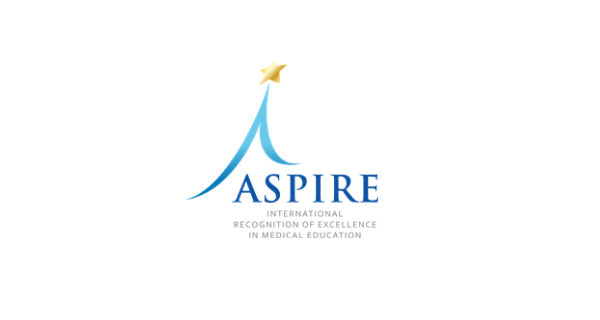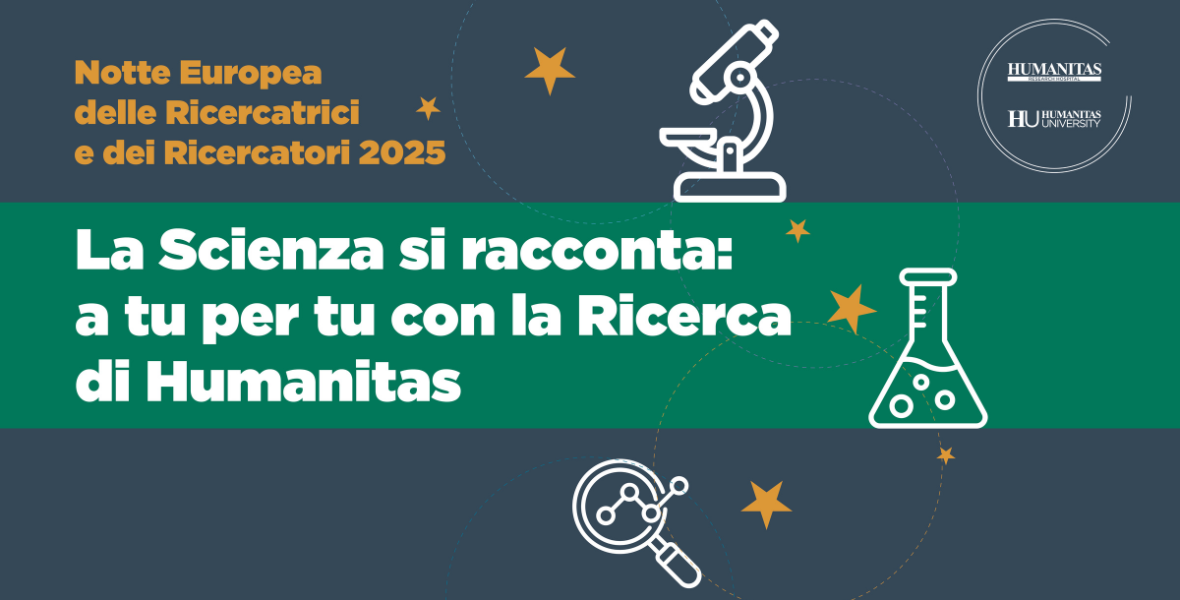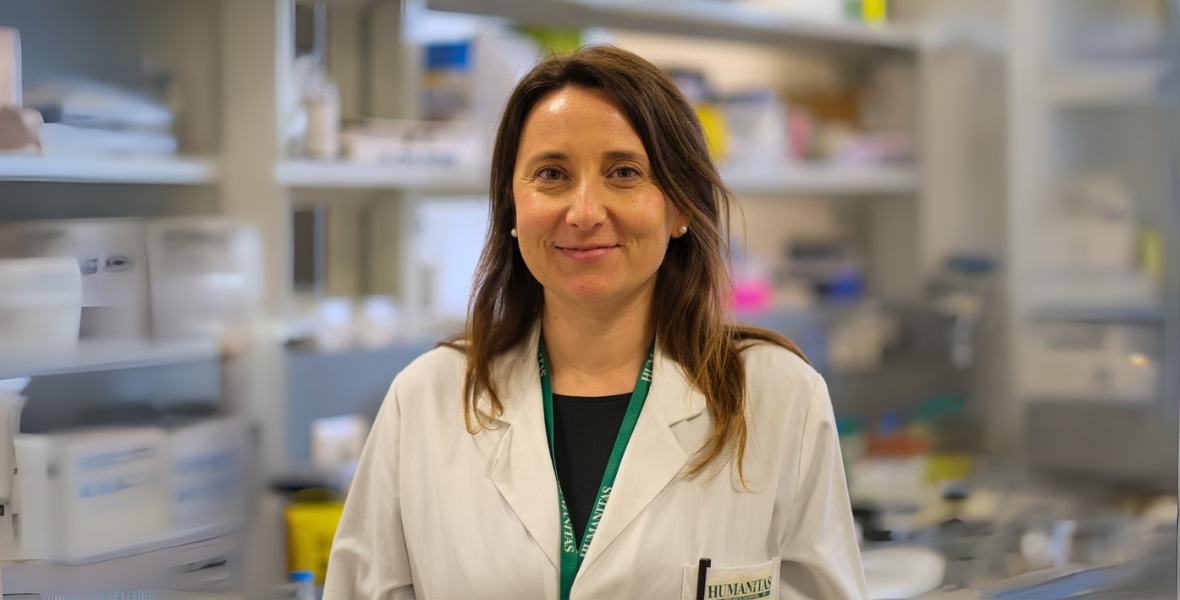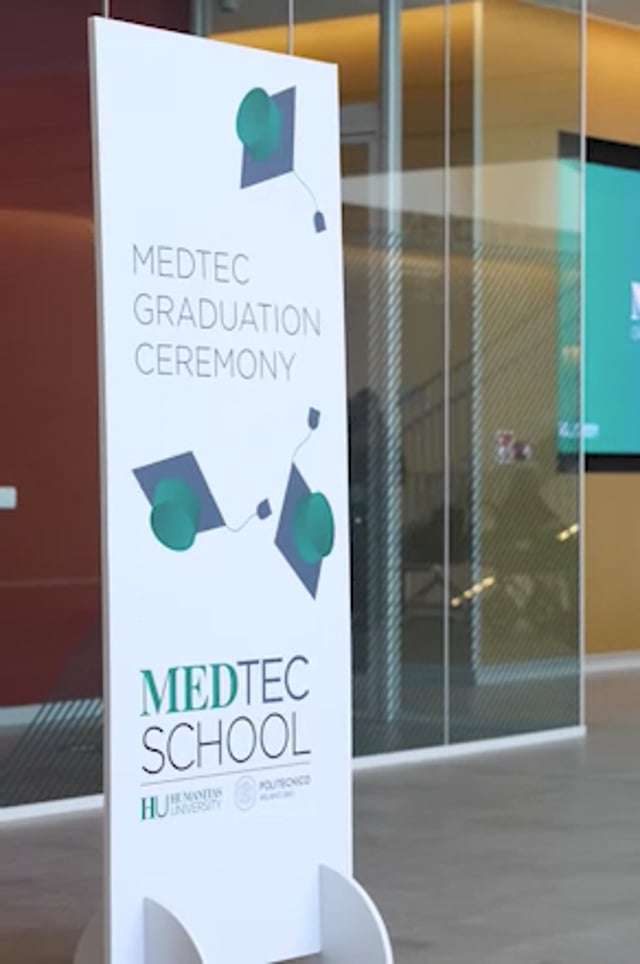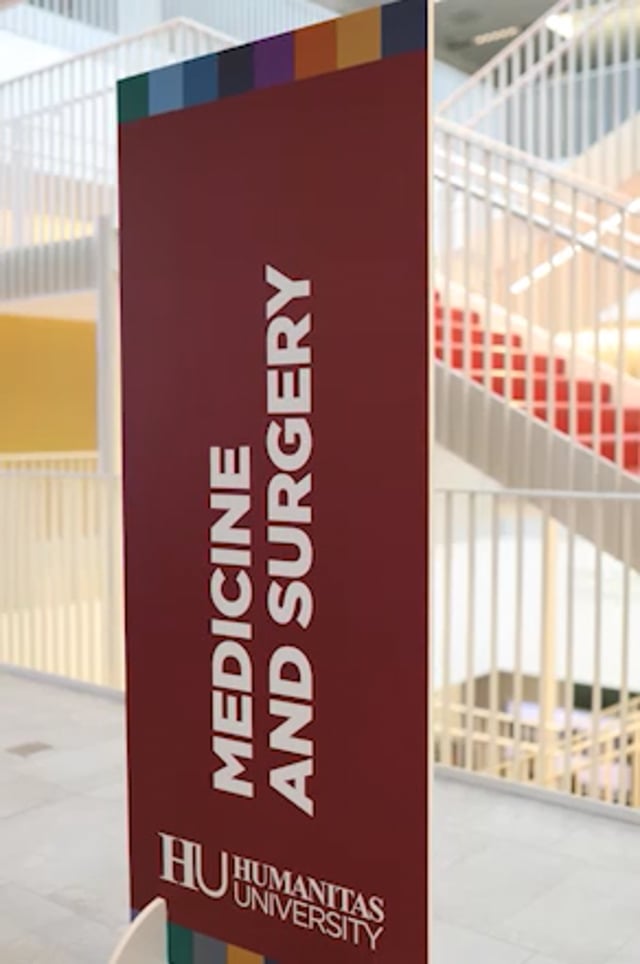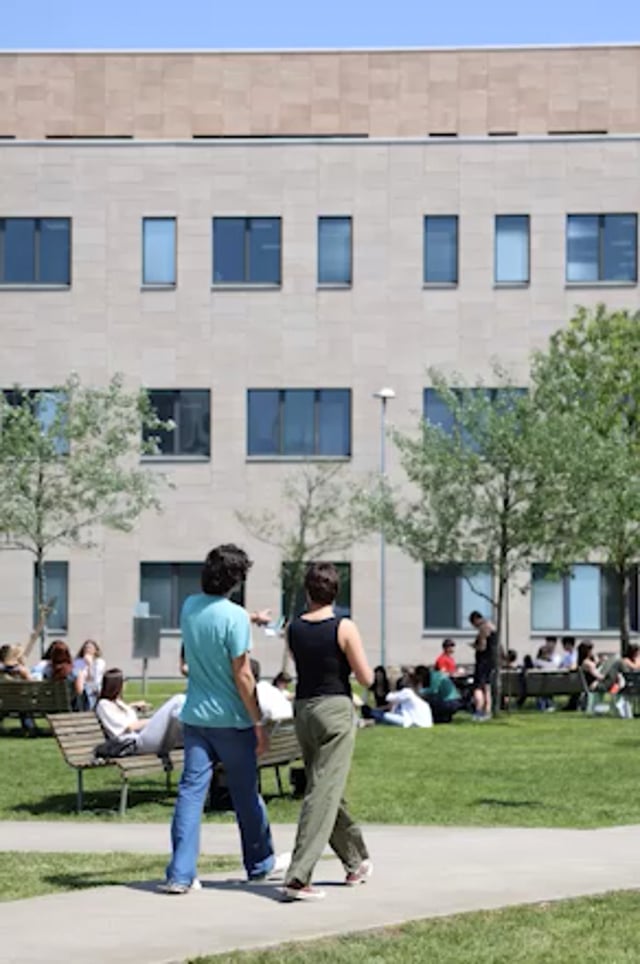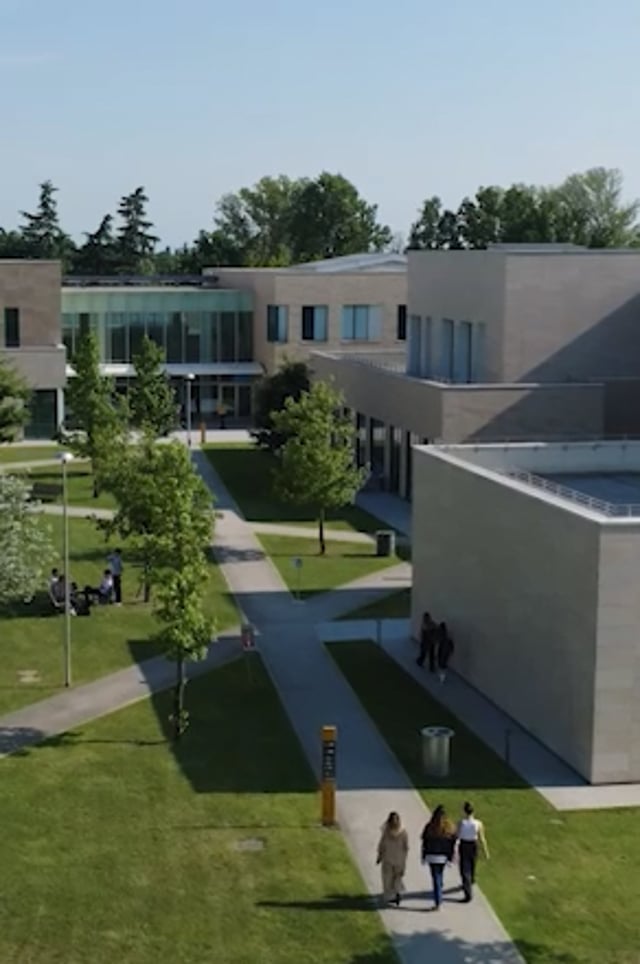An award for excellence in medical simulation. The Aspire-to-Excellence Award 2021 for the “Simulation” category was awarded to the English-language medical degree course at Humanitas University. Dr Silvia Oldani, Head of the Office for Medical Education (OME), who submitted the application for the award, is also the founder of the initiative. Together with her, other Office members, namely Dr Carolina Del Pozo, doctor, Dr Licia Montagna, pedagogue, Dr Valeriano Vinci, doctor, contributed to the award. The outcome was also possible thanks to the support and collaboration of the President of the Degree Course and the Rector’s delegate for teaching, Professor Isabella Barajon.
The aim of the AMEE ASPIRE AWARD,” explains Oldani, “is to recognise excellence in the medical field. There are eight different areas of application for those who want to participate, we have chosen simulation. Our programme of professionalising activities has a special feature, namely the possibility to fully integrate it with the curriculum of the medical degree course. In fact, the activities have been designed according to the content of the courses in each semester and taking into account the ideal progression in acquiring medical skills and competences, all with reference to the pedagogical models of the medical education literature. Basically, it is a course that integrates basic medical knowledge with the clinical part: “We can say that the course offered by our medical school is unique within the Italian scene precisely because of the integration between theory and practice, and between pre-clinical and clinical years that we offer students,” explains Barajon.
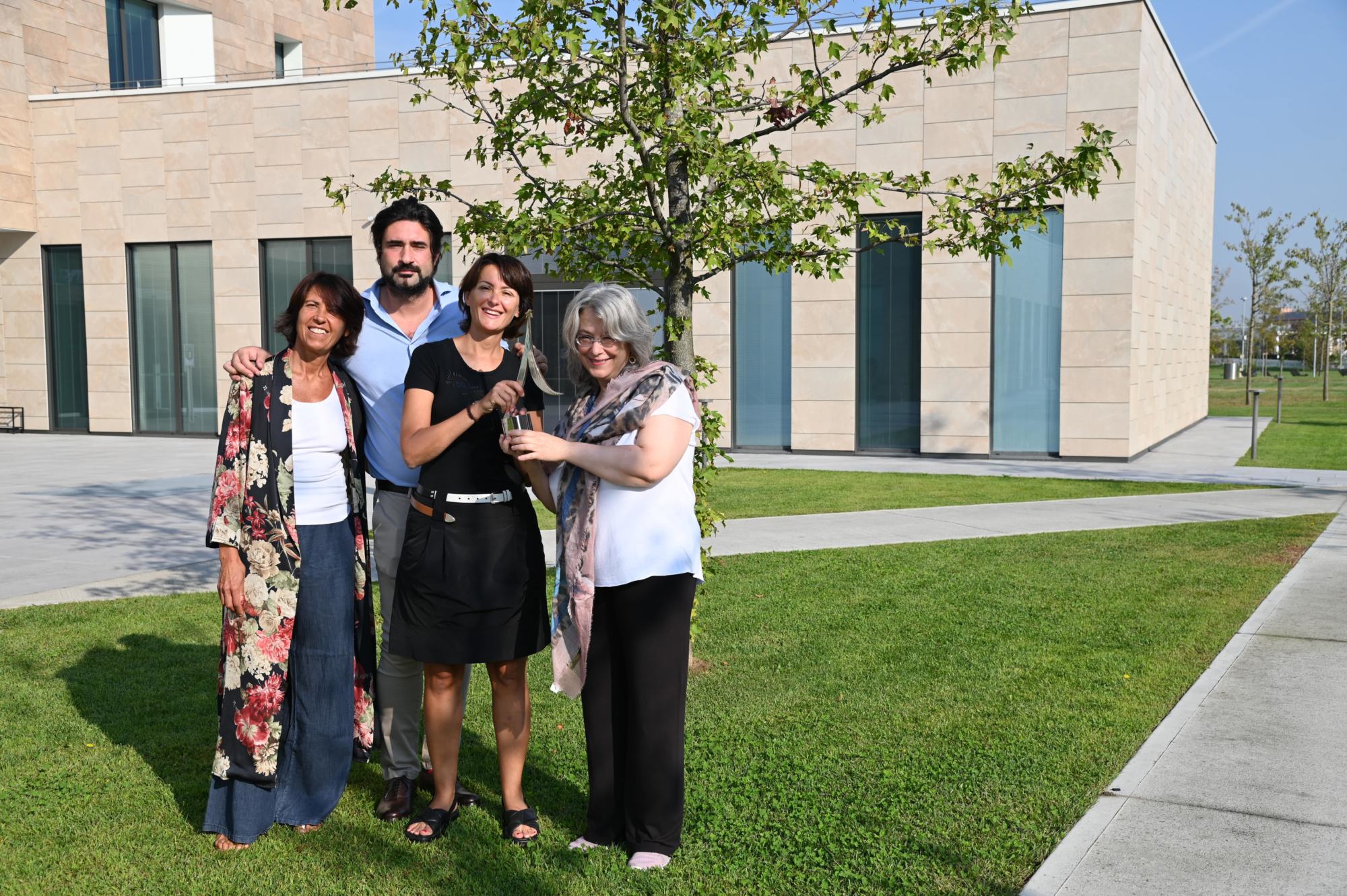
Picture above: Dr. Licia Montagna, Dr. Valeriano Vinci, Dr. Silvia Oldani, Prof. Isabella Barajon – Humanitas University Campus
The professionalisation programme of the medical degree course includes several learning areas. In addition to hospital experience and specific clinical case discussion sessions, the course offers students the opportunity to practice with simulation. This is thanks to the Mario Luzzatto Simulation Centre which, with its almost three thousand square metres of space, offers all the facilities needed to carry out this type of activity.
The course lasts six years and each academic year provides different levels of learning for the development of the students’ professional skills. “In the first and second year, students learn the basics of objective examination in the Body Architecture and Body at Work (anatomy and physiology) courses. From the third year, proper clinical work begins so students learn how to take patient histories and how to do the objective examination through to the development of clinical reasoning, all at increasing levels of complexity. While the third and fourth years are also crucial for performing procedural skills, the fifth year allows students to measure themselves against clinical reasoning and team working using high-fidelity simulation, exactly the same way as in real situations’ Oldani explains.
Therefore, simulation has a key role because from a patient safety perspective, allowing students to have a methodological approach in a protected environment where they receive timely feedback on learning how to manage clinical complexity. In this context, having a large and well-trained “open Faculty” of doctors from the hospital who collaborate in the degree course, is fundamental for the realisation of this project. “It is only thanks to this close collaboration that we can provide students with all the competences envisaged by our course,” concludes Oldani.
